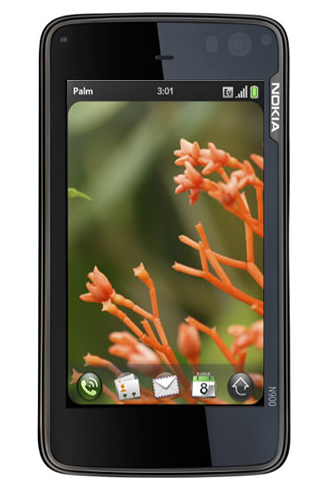Is it a sound business decision for Nokia to buy Palm?

Shares of mobile manufacturer Palm rose on Friday in response to rumors that the beleaguered company would be bought by worldwide global mobile giant Nokia.
But is there any sense to that business decision?
Palm is no stranger to rumors about a buyout, but this version is an interesting mix. Nokia has the most spread by far in the global mobile space, and Palm is facing irrelevance (again) thanks to its Pre and Pixi handsets' lack of runaway popularity that it hoped would bolster the company's future existence.
But the rumors -- which would suggest, then, that Nokia would absorb Palm's handsets and its critically-acclaimed but not very popular mobile platform, webOS -- don't add up very well.
Nokia's latest handset, the N900, uses an in-house, Linux-based operating system called Maemo. Taking on Palm would scuttle either Maemo or webOS, and I'm not so sure Nokia's largesse would allow it to consider ceding its own creative development to tiny Palm.
In another suggestion, ZDNet's own Jason Perlow said Palm would be best bought by Research in Motion, maker of BlackBerrys and aging mobile platforms. But I'm not so sure that makes sense. Sure, RIM needs a buy like this, but it doesn't seem as though the company is willing to swallow its pride and development to switch whole hog, either.
Every mobile company wants to hang its success on its own OS to maximize control and revenue. But the development marketplace won't sustain that many platforms, and some will die. As Perlow wrote, Darwinism will take place -- but that will take time and successive poor returns before a company will give up its own projects.
Not every company will bite on Android, though -- differentiating in the marketplace is a good thing, to a point. But three or four distinct platforms is the most I believe the market will sustain. (We've already got more than that: Apple iPhone OS, Google Android, RIM BlackBerry OS, Palm webOS, Microsoft Windows Mobile, Symbian, Nokia Maemo, etc.)
Palm has offered a tempting solution, and Nokia has the breadth to help it succeed, but the business proposition isn't there: why would Nokia exchange one expensive, little-adopted smartphone platform for another?
The evidence: if Nokia can't get its own platform off the ground, why should Palm's platform succeed any more with the same engine driving it?
Several other companies have been rumored to buy Palm, but the math still doesn't add up: Dell has already introduced its Google Android-based Mini 3 smartphone, Motorola's gone all-in with Android and Microsoft has committed itself to Windows Mobile 7, no matter how far behind it is.
Another problem: Palm ain't cheap. Any buyer would have to put up more than a billion for the company, and that's before any of the legwork begins to integrate, develop and deploy.
Lastly, Palm doesn't seem to have been easy to work with. It's only on Sprint, it's not available outside of North America correction: it is now -- but it wasn't for a whole year!, it won't license its operating system and it's ignored developers for up to a year.
Some have said that a company like Nokia could simply license Palm's webOS operating system, which would save it considerable expense. But that seems unlikely unless the buyer deems webOS superior to its own efforts, and unsuccessful only because Palm didn't have the corporate muscle to support it.
Will Palm simply die on the vine? Perhaps. But I don't believe Nokia's the company that's willing to sustain it.
